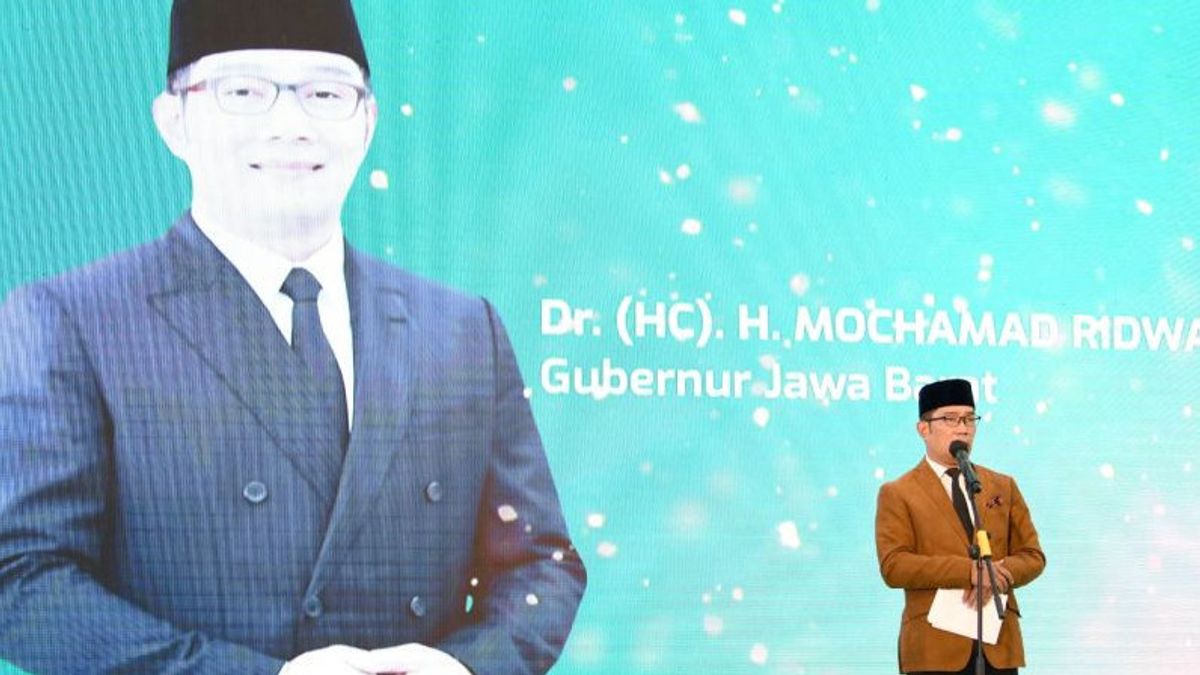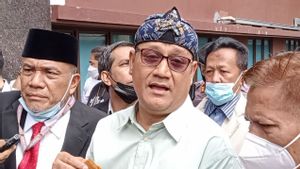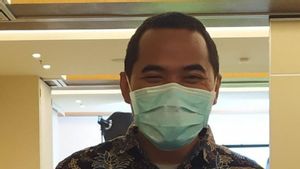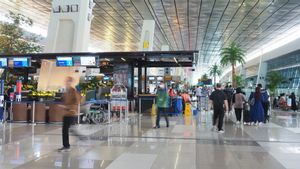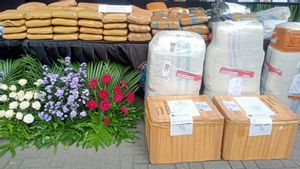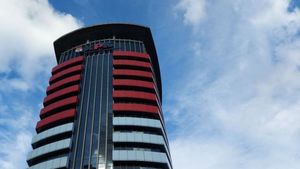BANDUNG - West Java Governor, M Ridwan Kamil, said as many as 492 people spread across Bogor, Depok, and Bekasi, tested positive for COVID-19 which was categorized as probable or suspected of being exposed to the Omicron variant.
"As of today, there has been no confirmation of Omicron. However492 probable Omicron people arere suspected of having similar symptoms. But it has not yet become Omicron because a Whole Genome Sequencing test must be carried out", said Ridwan Kamil at Gedung Sate Bandung, quoted by Antara on Monday, January 31st.
Ridwan Kamil said the 492 people were included in the COVID-19 case in West Java.
However, he continued, further testing should be carried out on these 492 samples to determine whether they were positively exposed to the Omicron variant through Whole Genome Sequencing.
Ridwan Kamil said that while waiting for the test results, close contact tracing and testing were also carried out as well as maximum care for patients suspected of being exposed to the Omicron variant.
Meanwhile, said Ridwan Kamil, all 33 cases of the previous Omicron variant of COVID-19, as many as 33 cases, have all recovered.
According to him, overall, as of January 30, 2022, 13,836 people were being treated or undergoing isolation due to being positive for COVID-19 in West Java.
Meanwhile, when compared to January 1, 2022, there were 532 active cases in West Java. The addition of daily cases increased dramatically.
VOIR éGALEMENT:
If on January 1, 2022, in West Java, only 18 cases of COVID-19 were added, but on January 30, 2022, 2,584 new cases were recorded in West Java.
This has led to a surge in hospital occupancy rates in West Java.
"In West Java, the surge in hospital occupancy has begun to be felt. As of today, it is around 15 percent, from the lowest around 1.3 percent on January 2. So in the early days of the year, we were very low and then it increased", he said.
Ridwan Kamil concluded that the increase in cases was due to the long holiday period at the end of 2021.
"Actually, it can be concluded that long holidays or big trips on public holidays influence the spread", he said.
Likewise, the COVID-19 isolation places in West Java, which numbered around 120 locations, have started to fill up again.
But what is unique is that there are allegations that people affected by COVID-19 choose to be hospitalized even though they are asymptomatic.
"We also ask to check that it is not like in Jakarta, Mr. Anies once said that the increase in the BOR (Bed Occupancy Rate) was a preference, not because he had to go to the hospital", he said.
"So people who are OTG (people without symptoms), rather than at home, choose to go to the hospital. Now, this creates confusion in statistics", he continued.
According to Ridwan Kamil, those who really cannot go to the hospital should be treated at home. This is what he will convey to regional heads in West Java.
"This is what can be treated at home, choose a hospital. Now, because this phenomenon occurred in Jakarta, I asked the regional head in West Java to check whether those being treated at the hospital really have to be treated or actually people who can stay at home but have a preference for going to the hospital", he said.
The English, Chinese, Japanese, Arabic, and French versions are automatically generated by the AI. So there may still be inaccuracies in translating, please always see Indonesian as our main language. (system supported by DigitalSiber.id)
